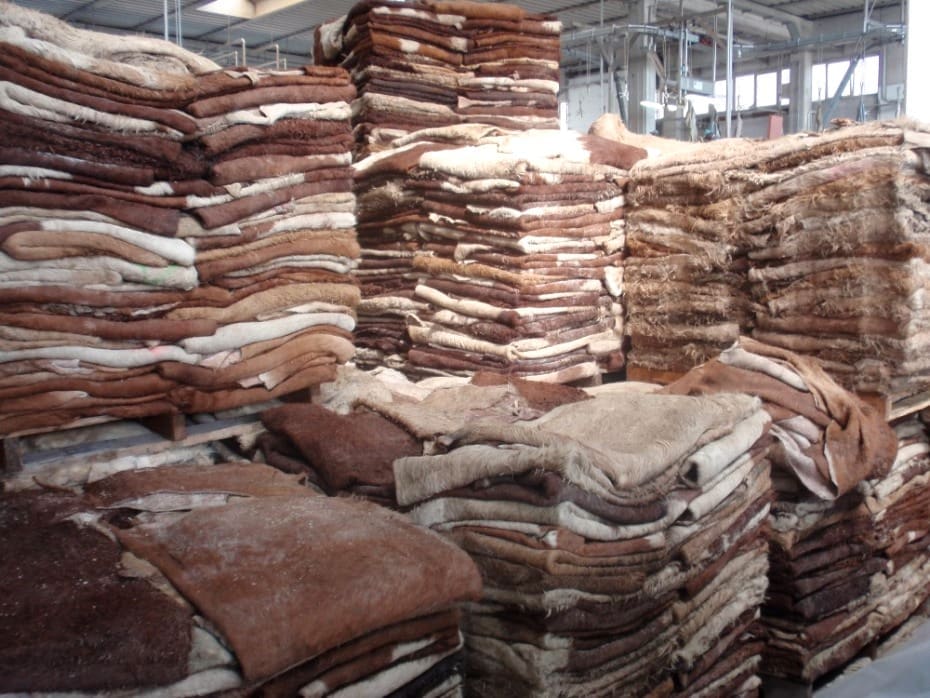The global leather industry has joined forces to push for greater recognition of its role in slowing down the fast fashion cycle and moving the textile industry away from fossil fuel-derived products.
28 representative organisations from across the world, including Australia, North and South America, Asia, Africa and the Middle East will take a manifesto to this year’s COP 28 climate summit in the United Arab Emirates – pushing policy makers to recognise the sustainability of its product.
Recent years have seen some high profile pushes away from leather, with Apple recently announcing its new array of watches would be leather free and car manufacturers like Volvo and Tesla vowing not to use leather in their electric vehicles. Shoe companies have also made high profile pushes away from kangaroo leather after sustained pressure from animal activists.
But the leather industry is pointing to the environmental sustainability of its product, with durability that can see items handed down through generations and a chance to move away from fossil fuel-derived synthetic products.
France and The Netherlands have already formed legislation to push clothing manufacturers into making products last longer, with the European Union and the United Kingdom forming similar laws.
The leather manifesto is calling on COP to:
- Recognise the cyclical, climate efficient nature of natural fibres and their potential for a positive contribution to reducing the climate impacts of consumer products. In particular, recognition of the separate contributions of long-lived and short-lived, and fossil-derived and biogenic greenhouse gases
- Wherever feasible to encourage the use of natural fibres like leather and reduce unnecessary reliance on fossil-fuel-based materials
- Support LCA (life-cycle assessment) methodologies that accurately account for the environmental impact of all materials, including end of life properties and the consequences of use and substitution
- Promote ‘slow fashion’, durable products, and items that can be used many times, repaired and refurbished, and last for years.
“There are currently huge volumes of a natural, readily available versatile hides and skins going unused which could be transformed into sustainable leather, replacing fossil fuel-derived synthetic alternatives, with the additional emissions and impacts those entail,” the manifesto says.
The Australian Hide Skin and Leather Exporters Association is signed onto the manifesto. Executive officer Dennis King said over the last four decades Australian leather processors have implemented a range of initiatives to reduce leather’s carbon footprint.
“An example is the significant lowering of the total dissolved solids discharged in the effluent through green processing and processing hides near the source, so they don’t need to be preserved for long,” Mr King said.
“The result – an Australian tannery processing 20,000 tonnes of hides a year now saves more than 7,000 tonnes of salt compared to four decades ago.”
Kangaroo industry warns against emotional arguments
Ahead of World Kangaroo Day tomorrow, the kangaroo industry is pushing for a more science-based discussion about the use of its products.
Shoe manufacturer New Balance was the latest sports shoe company to stop using kangaroo leather on the back of pressure from animal activists. The Kangaroo Industry Association of Australia says it acknowledges concerns raised by animal activists, but emphasises the importance of a fact-based, scientific approach to the management of an overabundant species.
KIAA President Ray Borda said the peak body for the commercial kangaroo industry is committed to dispelling myths and ensuring the public understands the environmental advantages of its practices.
“Emotionally charged and inaccurate campaigns will lead to adverse animal welfare outcomes,” Mr Borda said.
“Decisions regarding kangaroo management are based on scientific evidence and a comprehensive understanding of the benefits it brings to both the environment and conservation efforts. All commercial industry kangaroo meat is produced as a result of the Australian Government’s Kangaroo Management Program, a program subject to strict regulations and ongoing scrutiny.”




HAVE YOUR SAY